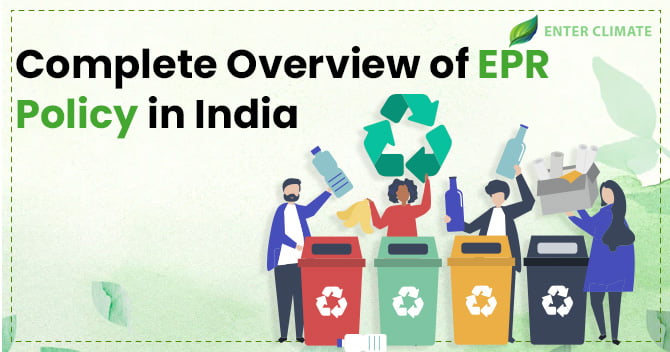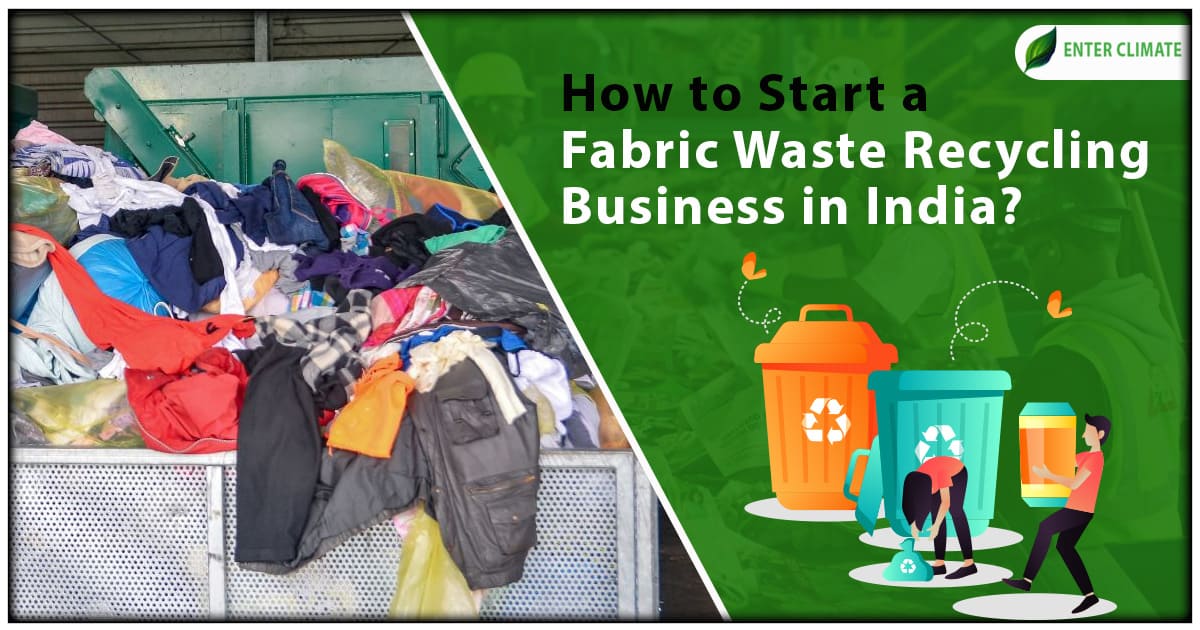Complete Overview of EPR Policy in India
 04 Aug, 2022
04 Aug, 2022 
The E-Waste (Management and Handling) Rules, 2011, first introduced the concept of EPR. The Ministry of Environment, Forest and Climate Change (MoEF&CC) notified the EPR guidelines in the Fourth Amendment to Plastic Waste Management Rules 2016. Recently the MoEF&CC issued guidelines on Extended Producer Responsibility for Plastic Packaging through the Plastic Waste Amendment Rules, 2022. These guidelines defined the EPR Authorisation requirement for plastic packaging. It also laid down the collection targets for plastic packaging in the newly introduced categories of plastic packaging. In the case of e-waste, the guidelines for PIBOs to manage their EPR obligation are given in E-Waste Management Rules 2016. The amendment to these rules came in 2018, which revised the collection targets of e-waste for the PIBOs. EPR Policy in India concerning plastic waste, as well as e-waste, requires a producer to take responsibility for the entire lifecycle (collection, recycling and disposal) of the product they put on the market. PIBOs are required to obtain their EPR authorisation from CPCB. They have the option of managing their EPR targets through authorised Producer Responsibility Organisations (PROs).
EPR Policy in India
Since the 90s, India has been actively trying to bring changes to its Waste Management policies by learning from successful models used by other countries. India was a party to the Basel Convention and signatory to international conventions like the Stockholm convention (2006) and the Rotterdam Convention that addressed the idea of shared responsibilities among the participating states. But the waste management sector felt a need to develop a defined SOP for reusability and recyclability. This required a target-oriented approach and involvement of resourceful entities with an understanding of the value of the waste. And so, the EPR Policy in India emerged. The Polluter’s Pays principle on which the EPR Policy is based shifted the burden of waste management from the government to the PIBOs. Soon enough, the E-Waste and Plastic Waste Processors and recyclers turned this responsibility into an opportunity. The private sector made the management of E-waste and Plastic waste a profitable and lucrative business.
EPR Policy for Producers of Electronic Equipment
Producers, Importers and Brand Owners of electrical and electronic equipment listed in Schedule I of the E-Waste Management Rules must apply for EPR authorisation to the Central Pollution Control Board (CPCB). Under the revised EPR Policy in India, the E-waste Management Rules have made the annual collection of specific percentages of e-waste mandatory. The annual targets for the collection of e-waste are fixed as per the quantity of Electronics placed in the consumer market in the previous years after taking into account the average life of the equipment.EPR Authorisation is granted in Form 1(aa) by the CPCB within one hundred and twenty days and is valid for five years. While the CPCB issues authorisation, the concerned State Pollution Control Boards/Pollution Control Committees (SPCBs/ PCC)monitor the compliance and take cognisance in for non-compliance of the terms under EPR Authorisation.
Extended Producer Responsibility Plastic Packaging Industry
Producers, importers, brand owners and plastic waste processors(engaged in recycling plastic waste or involved in waste to energy, waste to oil, and industrial composting) are the identified entities that need EPR authorisation under the recently notified Plastic Waste Management (Amendment) Rules, 2022. Under the revised EPR Policy in India, plastic packaging has been categorised into four new categories. The obligations of PIBOs using plastic packaging include
- Registration on the centralized EPR portal developed by CPCB.
- Submission of EPR Action Plan for Plastic Waste Management
- Recycling of plastic waste
- Use of Recycled content in production
- Reuse of plastic in the manufacturing process
- End-of-life disposal
- Collection and recovery of the plastics (with an option of engaging PROs for the purpose)
- Submitting annual returns to the CPCB
- Provide proof of certificates (Plastic credits)
Document required to obtain EPR Authorisation
Though the process of EPR Authorisation is similar for Plastic and Electronic items manufacturers, the required documents may vary based on the type of the unit seeking authorisation. However, the following are the common documents required at the time of authorisation.
- Identity proof (PAN Card)
- Details of the signatory
- Contact details
- Address proof
- BIS License
- Details of compliance with RoHS
- Certificate of incorporation of the manufacturer/importer
- EPR Action Plan
- Estimation of E-waste/ Plastic Waste
- Product details
- Copy of agreement entered with recyclers, storage and disposal dealers, collection centres, etc.
- Details of toll-free number and website
- Any other document as may be required
Concerns with EPR Policy in India
The focus of the EPR policy in India was laying down defined responsibilities and targets for every stakeholder. Provision to penalise PIBOs for missing their targets in the form of environmental compensation and carrying forward their unmet targets may work in increasing EPR compliance. But compliance with these policy changes for new entrepreneurs can be hectic and time-consuming. PROs have helped many businesses bring much-needed clarity, efficiency, coordination and accountability to waste management. But the targets meant for the PIBOs have drastically increased. For instance, as per the 2022 amendments to PWM Rules[1], the producers of plastic packaging had to manage 25% of the ‘Q1’ waste (in MT ) in 2021-22, and this has reached up to 70 % for 2022-23 and will go up to complete 100 % from 2023-24 onwards. The recently introduced ban on SUP has further raised the chaos, and therefore need for expert guidance from resourceful organisations like Enterclimate is the need of the hour. Professionals at Enterclimate can help the PIBOs with the much-needed aid guidance.
Conclusion
Plastic waste and e-waste are of huge concern, and management is the need of the hour.Waste Management Laws have been a vital tool in controlling pollution. Fast-growing economies like India continues to face a significant challenge in this regard. Earlier, the onus of managing waste used to be with the government. That seemed ineffective as it did not address the problem at its source. The introduction of EPR in plastic waste and e-waste management increased the effectiveness and coverage of the Waste Management Rules. EPR Policy in India was a result of exhaustive research on the waste management practices, consumer habits and the successful EPR Policies existing in other countries.EPR authorisation should not be seen as an additional cost in the business. Before the introduction of EPR, the cost of recycling was borne by all taxpayers. The introduction of EPR has shifted this cost to the user of the products. PIBO can still charge this added cost from the consumer, but only those who are the product users will be funding the waste management.













